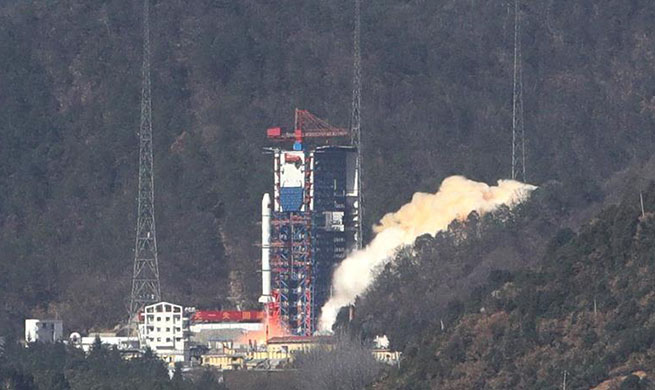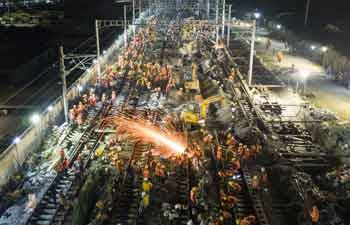GUANGZHOU, Jan. 25 (Xinhua) -- Guangdong Province plans to put another 20,000 industrial robots to work this year, sharpening its already keen manufacturing edge.
Guangdong governor Ma Xingrui announced the plan Thursday as he delivered a report to the local parliamentary session.
"We will intensify our efforts to digitize manufacturing and make our industry smarter and greener," Ma said.
Guangdong is focused on the real economy, with manufacturing at the foundation, he said.
The robot industry is a key to the "Made in China 2025" strategy.
China is already the biggest market for industrial robots in the world, producing around 10,000 a month in 2017, 70 percent more than the previous year. The value of China's industrial robot market is expected to top 4 billion U.S. dollars in 2017 and increase to around 6 billion dollars in 2020.
In 2016, Guangdong had more than 60,000 industrial robots, a fifth of the country's total. The provincial IT commission expects there to be five times that number by 2020.
In 2015, Guangdong came up with the "machine for man" plan to advance the use of robots. Close to 2,000 manufacturers signed up in 2017.
Dongguan City, the "world's factory," acted earlier. In 2014, buckling under a shortage of labor and surging wage bills, the city began a three-year push for automation, providing subsidies to make robots affordable for more businesses.
Both productivity and product quality went up and labor costs went down, according to Ye Baohua, director of the city IT commission. The proportion of products meeting quality standards has risen to 90.7 percent from 86.1 percent, while overall costs fell 9.4 percent.
Astonishingly, productivity has more than tripled. The machines have done the jobs of nearly 200,000 workers. This "man for machine" swap, however, does not mean a drop in demand for workers, Ye said. Dongguan's manufacturers are badly in need of skilled operators of intelligent equipment.
"Workers accustomed to simple tasks will learn to take on new jobs," Ye said.

















